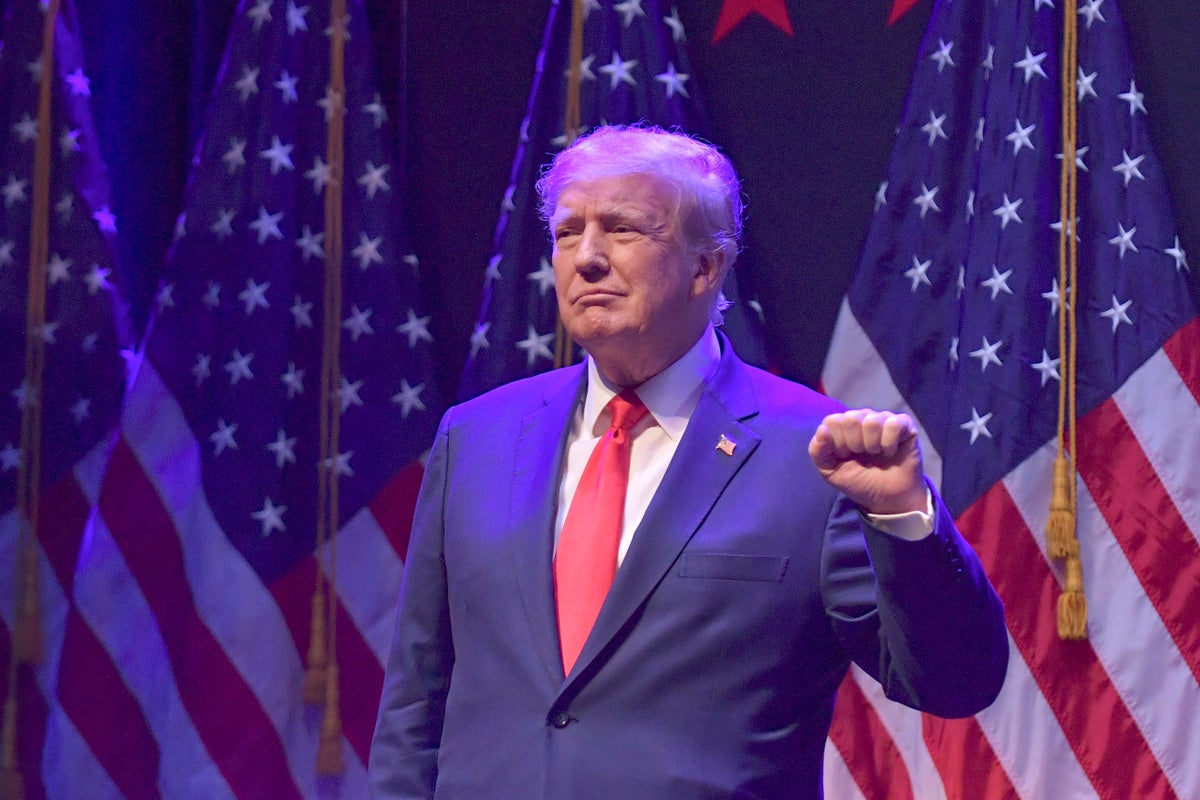
Former president Donald Trump has been indicted in Manhattan District Attorney Alvin Bragg’s grand jury investigation into a hush payment made to a porn star by Mr Trump’s attorney Michael Cohen in 2016.
The investigation has been ramping up in recent weeks and on Thursday 30 March, the Manhattan grand jury voted to indict Mr Trump on criminal charges.
Sources confirmed the unprecedented development to The Independent on Thursday afternoon – making Mr Trump the first current or former president to ever face criminal charges in the history of the US.
It is currently unclear what the charges are.
In recent weeks, the probe had entered a new phase and Mr Bragg’s office contacted the president’s lawyers to offer an opportunity for voluntary testimony, a sign that meant an indictment or multiple indictments were likely in the works. Mr Trump himself predicted on 18 March that he would be arrested the following week on Tuesday 21 March, which did not come to pass.
“THE FAR & AWAY LEADING REPUBLICAN CANDIDATE & FORMER PRESIDENT OF THE UNITED STATES OF AMERICA, WILL BE ARRESTED ON TUESDAY OF NEXT WEEK. PROTEST, TAKE OUR NATION BACK!” Mr Trump posted on Truth Social in a furious all-caps message.
The grand jury’s proceedings were then called off on Wednesday 22 March and pushed back again the following day, delaying an indictment further.
Now that Mr Trump has actually been indicted, it marks the first time an investigation into his inner circle (of which there have been several, with the most famous leading to multiple indictments for figures connected to the 2016 campaign) has actually drawn blood from the former president himself.
The Justice Department’s protocol against charging a sitting president appeared to cool any ability of the agency to do so while he was in office, but the president’s loss in 2020 opened the door to prosecution for both the 2016 Stormy Daniels matter as well as for an investigation into the January 6 attack and Mr Trump’s efforts to overturn the election.
That second investigation continues, with the distinct possibility of potential charges for both Mr Trump and members of his legal team. And alongside the Bragg investigation, it raises the question: What happens to the 2024 race, and Donald Trump’s ability to participate in it, now that he is under criminal indictment?
The short answer is, not much. There are no restrictions in the US Constitution preventing anyone indicted or convicted of a crime, or even currently serving time, from running for or winning the presidency. Even if he were tried and convicted in one of the so-called “quick trials” he has repeatedly cheered China’s government for operating in the cases of drug offences, Mr Trump could still run the entirety of his presidential campaign from a prison cell.
What is far less clear is what would happen were he to win in that scenario. Just as there are no restrictions in the Constitution for a person to run while under indictment, there’s no explanation for what should occur in the event that they win. There’s nothing in the document that would automatically grant Mr Trump a reprieve from prison time, save for the likelihood that any charges brought by federal authorities, were they still being litigated at the point when Mr Trump assumed the presidency for a second time, would be dropped due to the Department of Justice’s refusal to prosecute a sitting president.
State-level charges like the ones being pursued by Mr Bragg are far trickier, and would fall outside of Mr Trump’s pardon power were they to conclude in a conviction.
Were conviction on state charges to occur alongside a Trump election victory, it would likely lead to a massive legal fight to determine whether there was a way for the former president to worm his way out of serving time. If Mr Trump was unable to avoid that outcome, it would almost certainly lead to his impeachment or removal via the 25th Amendment, which allows the Cabinet to remove a president who is unable to perform their duties. There are many duties and trappings of the presidency that would simply be impossible to be operated or performed from a prison cell, the viewing of classified materials just to name one.
Any potential conviction of Mr Trump is still a long way off and little more than a distant possibility. But the conversations he has started with his bid for the presidency despite facing multiple criminal investigations have already pushed parts of theoretical US constitutional law into a much realer place than many experts ever thought it would see.







